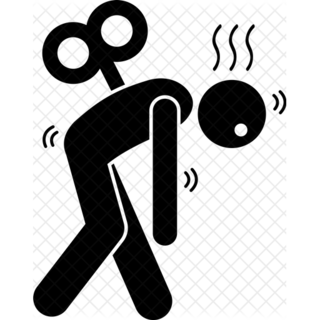Stress
Tired of Day-to-Day Existence?
Some causes and suggestions.
Posted September 12, 2020 Reviewed by Lybi Ma

In public, we tend to act perky even if tired. But privately, especially at the end of the day, we may feel very differently.
Of course, fatigue has many causes, each with its own tactics for amelioration. I discuss seven here:
1. Physical problem. If you’re chronically tired, should you get a physical exam? Or do you already know the problem, for example, that you'd have more energy if you lost weight? How's your sleep hygiene: a calming pre-bedtime ritual, cool room, CPAP if you have sleep apnea?
2. Mental illness. Depression, clinical-level anxiety, or the crash from a bipolar high can, of course, cause fatigue. Are you treating your condition well, for example, with cognitive-behavioral therapy, perhaps augmented by medication?
3. Your job’s psychological toll. Stress can, of course, cause fatigue, but its source may not be readily apparent. I had a client who was a special education teacher and came home exhausted every day. It wasn’t so much caused by the kids as by having to try to constantly convince regular-education teachers to reallocate time from the other students to the mainstreamed special ed students. On probing, my client admitted that she felt that yielded a net negative: less attention for kids with more potential to contribute to society. She realized that she was anxious every time she was pitching a teacher and, cumulatively, that took a toll. So she decided to teach regular-education students and while yes, some days, she comes home tired, she's much better.
A different sort of example. A police officer suffered great stress, not just from ever having to enter contentious, often dangerous situations, but because after four years on the force, he occasionally lost patience. He hadn’t yet done anything that could get him in trouble but worried that his anger and frustration could at some point, boil over. And especially today, even once is unacceptable. He was exhausted every day and de-escalation and anger-management training helped only modestly. We developed a plan for getting an early promotion off the street. That didn’t work but he did get a transfer to a less stressful beat.
Of course, parenting and other domestic chores can also be fatiguing. Are you getting the help you need? Or are you to trying to be a too-perfect parent or homemaker?
4. Your job’s physical toll. If you’re doing manual labor, whether construction, farming, whatever, you’re going to be tired at the end of the day. The question is whether it’s “good” tired—that pleasant calm that comes from having done a good day’s work and now it’s time to relax, or “bad” tired: exhaustion and with each passing day, your fatigue hits earlier and earlier? If it’s the latter, is it time to plan a transition, for example, to supervisor or trainer, or at least to get some help with the most arduous tasks?
5. Diurnal dip. Most people feel some fatigue at some point in the afternoon. Can you take a “power nap?” A restorative walk? Or would a coffee or other caffeinated drink be okay?
6. Substance use. Whether it’s coming down from an upper or hallucinogen or the fatigue induced by alcohol or marijuana, are the benefits you’re deriving from such a substance worth the fatigue and any other negative side effects?
7. Life fatigue. Are you tired of your day-to-day existence? Of lack of meaning? Are you ready for a small pivot, even a large change?
The takeaway: You can’t do much when tired, except perhaps to make more mistakes or behave badly. Do any of the foregoing suggest something you’d like to try?
I read this aloud on YouTube.


